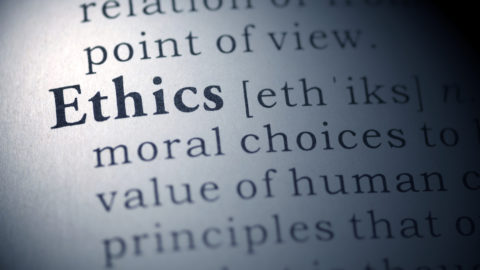On October 6, 2021, the American Bar Association issued Formal Opinion 500 addressing language access in the client-lawyer relationship. The Opinion notes: “Communication between a lawyer and a client is necessary for the client to participate effectively in the representation…
Conflict of Interest- Informed Written Consent
Conflicts of interest between current clients is an issue that warrants the constant attention of lawyers. The California Rules of Professional Conduct (CRPC) require the lawyer to obtain informed written consent from both clients if the lawyer is representing a…
Legal Ethics and Attorney Mistakes
Missing a deadline for filing a pleading or discovery response, or omitting an important argument from a brief, can have grave consequences for the client. While some mistakes are more serious than others, the lawyer must still adhere to the…
What Not to Include in Fee Agreements
Starting your client relationships off right can minimize your risk of liability. Your engagement agreement should set the tone and act as a road map. The sample hourly and contingent fee agreements published by the State Bar of California can…
Can You Confront Opposing Counsel if Opposing Counsel Is Violating the Rules of Professional Conduct?
Believing that opposing counsel violated the California Rules of Professional Conduct (CRPC or Rule) can present a clear ethical dilemma for attorneys. However, Rule 3.10, also known as the extortion prohibition rule, provides limitations on the attorney’s actions. Rule 3.10…
Data Breach: Breaking Down a Lawyer’s Ethical Duties to Inquire and Disclose
Your laptop or smartphone containing client confidences is lost or stolen. Or, you learn that the public Wi-Fi that you accessed yesterday without using a Virtual Private Network (VPN) was a fake internet portal set up by hackers. Even worse,…
Can You Handle the Truth?
Attorneys must be honest for the justice system to work and for the system to have any credibility to the general public. To that end, attorneys had a duty of candor under the old California Rules of Professional Conduct (CRPC)…
Legal Ethics and COVID-19
As we navigate the challenges of representing clients during the COVID-19 pandemic, we need to remain mindful of our obligations under the California Rules of Professional Conduct (CRPC). A recent Legal Ethics Corner (To Be Diligent, BASF Bulletin, May 2020)…
To Be Diligent
The California Rules of Professional Conduct, Rule 1.3 imposes a separate duty on attorneys to be diligent in their representation of clients. Specifically, Rule 1.3 provides: “(a) A lawyer shall not intentionally, repeatedly, recklessly or with gross negligence fail…








